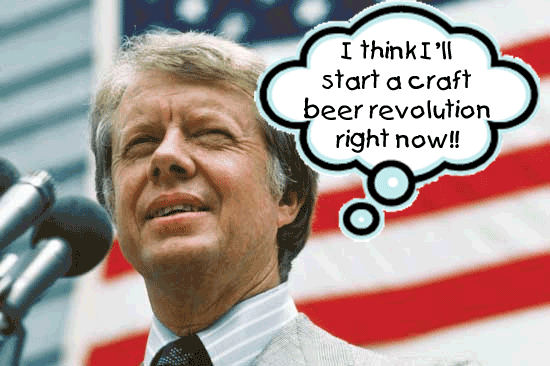
It’s the middle of summer so there’s no better time to hang out and talk beer in the beer cave of your favorite C-store. (Just don’t hang out too long. We don’t want to encourage loitering.)
If you’re a person of a certain age, you’ve seen the beer landscape change significantly over time. Four or five decades ago the choice for beer drinkers was limited: mostly domestic pale lagers mass produced by big national names. The generically designated “dark beer” on tap at the local pizza parlor was as exotic as brew got (what kind of beer was it, anyway?). Yeah, Anchor Steam was around, but it seemed almost mythical, too far removed to be relevant to daily college life.
To our best recollection, the beer market began to shift in the early 1970’s with the heightened visibility and availability of beers imported from outside the United States. Our first memories are of Löwenbräu (the German brand, not the American version that followed), Beck’s, Heineken, Dos Equis, and our own personal favorite, Carlsberg from Denmark—a luxury for a student with a limited budget.
Before long the U.S. rose to the challenge from outside its borders and got the craft brewing/brewpub explosion started, thanks in large part to President Jimmy Carter who signed a bill in 1979 to deregulate the industry. This encouraged entrepreneurs across the country to start their own niche commercial breweries, so it’s not too much of a stretch to call President Carter the father of the craft beer revolution (Billy Beer notwithstanding).
Today’s beer enthusiast, as a result, can drown his or her thirst in an embarrassment of liquid riches. Pale ales, stouts, bocks, wheats, and pilsners—in countless iterations from some 2,360 U.S. craft brewers (according to Wikipedia)—vie for the customer’s attention next to an array of imports and a selection of venerable pale lagers. It’s an upscale trend, and C-stores are positioning themselves successfully by embracing the change.
Examples are plentiful.
The Craft Beer Exchange from Sunoco APlus stores is a concept that capitalizes on this winning trend by allowing customers to fill and re-fill their reusable 64 ounce growlers with fresh beer from the tap, suitable for transport home. The Growler Guys, innovators in brewing that pioneered the growler-to-go concept Sunoco has embraced, got their start at a Stop and Go Shell gas station. Four Sons convenience store in Mesa Arizona is one of a growing number of C-stores offering craft beer from a number of colorful taps.
One craft beer type driving the advance of craft beer sales in C-stores is India Pale Ale, “IPA” for short. Hoppy, strong, and not for the faint-hearted, this blog’s favorites include Maximus IPA from the Lagunitas Brewing Company, Ruination IPA from the Stone Brewing Company, and Bear Republic Racer 5 IPA. Of course, this is a California-centric list and a tour of craft breweries across the country will no doubt uncover IPAs and other specialties every bit as good. If only we had the time!
Amidst the dramatic shifts in the beer market, the C-store has proven to be a constant, adapting its selection to accommodate changing tastes and fleeting fads. It adds up to a steady procession of satisfied customers and a healthy revenue stream, more proof that the C-store concept is uniquely suited to thrive in a market that continues to develop in surprising and unexpected ways.






Great post! The craft beer revolution is truly inspiring. Your insights into the industry’s increase and creativity are spot-on. Looking forward to extra enticing content material like this!